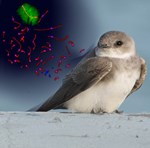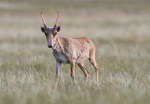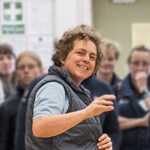Search - Research
201 - 210 of 416 results
-
RVC and LSHTM publish joint study evaluating the Government’s Anti-Microbial Resistance Strategy
The Royal Veterinary College (RVC) together with the London School of Hygiene & Tropical Medicine’s Policy Innovation and Evaluation Research Unit (LSHTM PIRU) has published an evaluation study on the Government’s Anti-Microbial Resistance (AMR) …The Royal Veterinary College (RVC) together with the London School of Hygiene & Tropical Medicine’s …
-
Research reveals dangers of replacement synthetic chemicals
Piglet study finds advised replacement of synthetic organic chemical, typically used in water bottles, still leads to increased exposure of a hormonally active substance in humansA new study conducted in piglets has revealed that synthetic organic chemical bisphenol S (BPS) …
-
New breakthrough in creation of feline stem cells could help develop treatments for heart disease in cats and humans
In what is believed to be a world-first, researchers have identified the conditions required to generate pluripotent stem cells from domestic cats, a finding which could have significant benefits for feline and human healthIn what is believed to be a world-first, researchers have identified the conditions required to …
-
Scientists discover songbirds have an unusual chromosome
A new study, involving scientists from the Royal Veterinary College (RVC) in England and the Institute of Cytology and Genetics (ICG) in Russia, has found that all songbirds have an additional chromosome in their germ cells unlike other avian species.A new study, involving scientists from the Royal Veterinary College (RVC) in England and the …
-
Population of critically-endangered Saiga antelope doubles in past three years
International group, which includes the RVC, dedicated to Saiga conservation shows the population now numbers over 228,000 compared to around 103,000 in 2015.The population of the critically-endangered Saiga antelope in Central Asia has doubled during 2016 …
-
Early Jurassic dinosaur shifted from four legs to two legs as it grew up
Scientists have discovered that an early species of dinosaur, Mussaurus patagonicus, could only move on four limbs once born but switched to two legs as it grew up, just as humans do. -
London’s ‘Knowledge Quarter’ is one of the world’s best locations for science and innovation
The one-mile radius around King’s Cross railway station in north London has been revealed to contain one of the highest densities of knowledge-based businesses and science organisations in the world.The one-mile radius around King’s Cross railway station in north London has been revealed to …
-
One Health research programme awards first £1m to fight infectious diseases
Projects conducted by RVC academics were among two of the three recipients of this first tranche of grants.The Bloomsbury SET, a £5 million translational research programme led by the Royal Veterinary …
-
RVC & Bloomsbury Learning Environment Contribute to Sector-Wide Conversation on Technology in Education
Researchers and educators at the RVC and Birkbeck have collaborated on a new e-book about the power and impact of technology on the learning, assessment and feedback of students in educationEducators will now have a valuable insight into the way technology can enhance assessment and …
-
Leading veterinarian awarded prestigious National Teaching Fellowship
An RVC professor has been honoured with a national award in recognition of her substantial national and international contributions to education and pedagogy.










